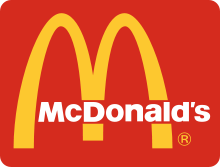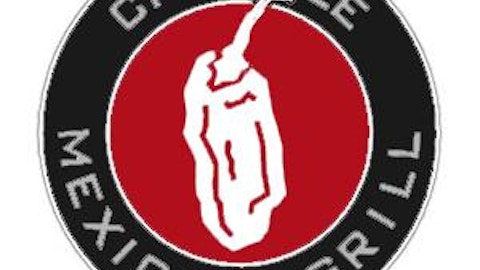
Financials
Recently, this Oak Brook, III -based company announced results for the second quarter, where it generated revenues of $7.08 billion, up 2% on the year. Operating income of the business rose by 2% to $2.20 billion, while net income rose by 4% to $1.40 billion. Earnings per share rose by 5% on the back of share repurchases, coming in at $1.38 per diluted share.
In the U.S., second quarter comparable sales rose 1.0% while operating income was relatively flat. During the quarter, new product introductions across the four key growth categories of chicken, beef, breakfast, and beverages, ongoing support for the Dollar Menu, supported the segment’s sales performance. The U.S. business initiatives are designed to satisfy evolving customer expectations through a balanced approach to value, variety, and convenience.
The company ended the first quarter of the year with $1.87 billion in cash, equivalents, and short-term investments. Revenues for the first six months of the year came in at $13.69 billion, up 2% on the year before. Net income rose by a similar 2% to $2.67 billion.
Competition
McDonald’s Corporation (NYSE:MCD) economic earnings grew 35% compounded annually while, main competitor Yum! Brands, Inc. (NYSE:YUM) only managed 15% compounded annual economic earnings growth. This Louisville, Kentucky based company reported an unimpressive earnings release for the second quarter as the Chinese poultry scandal weighed down the firm’s sales in China.
There is a 12.2% decline in sales in June, which is lower than what analysts had expected. The company’s revenue declined by 8% year-over-year to $2.9 billion. Earnings-per-share was even weaker, falling 16% year-over-year to $0.56 per share. Second-quarter profits fell 16% as KFC’s same-store sales in China fell 20%.
Yum! Brands, Inc. (NYSE:YUM) is expected to recover in the second half of the year. China is the most critical market for this fast-food chain as it sees tremendous growth potential in this emerging economy. After being accused of using chicken with unapproved levels of antibiotics, Yum! Brands, Inc. (NYSE:YUM) has adopted a new marketing strategy. Other than cutting ties with suspected food suppliers, the company has deployed a rigorous quality control check process and is showing new ads to win back lost customers.
Another competitor of McDonald’s Corporation (NYSE:MCD) is Burger King Worldwide Inc (NYSE:BKW), whose 99 percent of restaurants are owned and operated by independent franchises which give a steady stream of franchise royalties and rental income. In the recent quarter, the Miami-based company’s revenue fell about 42 percent to $327.7 million. Total restaurant expenses, fell nearly 70 percent to $108.1 million. The company’s restaurant revenues tumbled 69 percent to $121.1 million, but its franchise and property revenues rose 19 percent to $206.6 million.
Recently, Burger King Worldwide Inc (NYSE:BKW) announced the expansion of its home delivery services into a number of markets like Boston, New York, Miami, Houston, Los Angeles, Chicago, San Francisco Bay Area, Las Vegas, Sacramento, greater Washington, D.C., Phoenix, and Denver. Further, Burger King is bringing back their two for $5 Mix & Match limited-time deal on a selection of the chain’s sandwiches/burgers followed by an introduction of low-cost food for its customers. From operation point of view, this company has expanded the number of field employees from 90 to 250.
In contrast to McDonald’s Corporation (NYSE:MCD), Burger King Worldwide Inc (NYSE:BKW) exhibits average growth rates for its industry as well as average margins. The company’s management effectiveness ratios are comparably low, as its most recent return on equity was 10%, return on assets was 2%, and return on investments was 2.8%.
Moving ahead
This year, McDonald’s Corporation (NYSE:MCD) is investing over $3 billion on upgrading its store interiors. $2 is targeted for new stores as the firm adds to its global footprint of 34,000 stores while Yum has managed to invest only $1 billion. The company said that the new interiors can increase sales by 6% to 7% in the year. New store openings, expanded hours, and menu improvements will help McDonald’s to achieve desired targets.
Burger King is also re-imaging its stores, and has completed 19% of the stores. This king is on the way to achieve a target of 40% re-imaged stores by the year 2015, and also formed a joint venture to increase the number of outlets to 1,000 in China. One of the reasons for Burger King’s slow growth in China is its late entry compared to Yum and McDonald’s.
With just 3% of operating income generated in China, McDonald’s has a different set of objectives than Yum. The company considers the country to be one of eight “major markets” that comprise over 70% of the company’s revenues. McDonald’s is also expanding its wings in South Korea and Malaysia, which, like China, should also see phenomenal growth.
McDonald’s highlights the power of a brand that customizes its offering to local tastes in individual countries. This is its key success for increasing income and sales in Europe. Despite the euro crisis and a troubled economy, 40% of total sales are from Europe.
McDonald’s has a strong competitive advantage over Burger King. It is easier for this hamburger giant to negotiate more favorable lease terms with landlords and developers, owing to its scale of operations. Unlike Burger King, McDonald’s is full of assets, from land to hamburgers that can be recognized by most people in the world.
To wrap things up
The fast food franchise has created a lot of value for its shareholders over the past decade. Since 2003, shares have roughly five-folded from $20 per share towards $100 at the moment, without suffering major setbacks. Simultaneous high growth, and Return on Invested Capital increases prove McDonald’s Corporation (NYSE:MCD) management team takes care of the real bottom line as well.
It is a great company overall with solid fundamentals and improving technicals. This company may be a good bargain moving forward with its worldwide brand recognition and presence.
McDonald’s is surely amongst the best breeds in the fast food industry, and it may be a worthwhile investment for the conservative investors. The company boasts a global operation coupled with an iconic brand image and a history of stellar business operations. I am therefore pretty bullish that this fast-food giant won’t let its valued investors down in the future.
The article This Fast-Food Giant May Yield Decent Returns to Investors originally appeared on Fool.com and is written by Abir Karmakar.
Abir Karmakar has no position in any stocks mentioned. The Motley Fool recommends McDonald’s. The Motley Fool owns shares of McDonald’s. Abir is a member of The Motley Fool Blog Network — entries represent the personal opinion of the blogger and are not formally edited.
Copyright © 1995 – 2013 The Motley Fool, LLC. All rights reserved. The Motley Fool has a disclosure policy.



